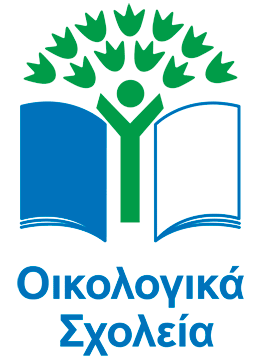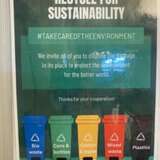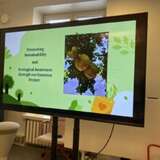ERASMUS COURSE: Περιβαλλοντική Εκπαίδευση στη Φινλανδία: η Οικοκοινωνική Προσέγγιση
Συμμετείχαμε σε επιμόρφωση ERASMUS με θέμα:"Environmental Education in Finland: the Eco-Social Approach"
ΤΟ ΠΡΟΓΡΑΜΜΑ ΤΗΣ ΕΠΙΜΟΡΦΩΣΗΣ
Introducing environmental education in the classroom poses a new challenge to today’s teachers. The subject is complex and the current perspectives aren’t too promising.
Thus, how can we increase students’ knowledge of ecosystems and environmental problems while also promoting hope? How can we encourage active citizenship among students when it comes to sustainable development? How to capture students’ attention and interest with an effective pedagogical method?
This course will help teachers deal with these issues by introducing them to the approach to environmental education adopted in the Finnish education system. The core curriculum for basic education in Finland emphasizes each one’s capacity to contribute to a sustainable future as it is built around four essential elements: participation, systems thinking, sufficiency, and responsibility.
As a participant in the course, you will experience how environmental education can support students’ personal relationships with nature, responsible consumer behavior, and active citizenship. You will discuss how to promote environmental education related to different environments: the forest, the city center, and the classroom.
You will learn new pedagogical methods and relevant theory through workshops, reflective discussions, and short theory input. Almost all methods used are interactive and collaborative. The group is seen as an arena for exchanging perspectives, solving problems, and learning.
By the end of the course, you will know how to implement the Finnish methods of environmental education. You will feel empowered to teach environmental education in your classes once return to your schools.
Learning outcomes
The course will help the participants to:
Discover the Finnish approach to environmental education;
Make students reflect on the impact of their actions on environmental sustainability;
Design and use learning environments that supports curiosity and learning;
Exploit collaborative methods to teach environmental education;
Supports hope and active citizenship among the students while teaching environmental education;
Implement new methods in environmental education in their school.
Tentative schedule
Day 1 – Introduction to the course and to the Finnish eco-social approach
Introduction to the course, the school, and the external week activities;
Icebreaker activities;
Presentations of the participants’ schools;
An introduction to Finnish environmental education.
Day 2 – How to support the students’ relationship with nature
Environmental education in the forest;
Reflective discussions;
Short theory input on different dimensions of environmental education and on the student’s relationship to nature.
Day 3 – The student as a consumer
Short introduction to sustainable development and responsible consumer behavior;
Workshop on responsible consumption;
Reflective discussion.
Day 4 – The student as an active participant
A short introduction to Paulo Freire’s theory and to eco-social education;
An eco-social city walk;
Reflective discussion.
Day 5 – Planning for implementation
Plan your road map for introducing new pedagogical methods at your school;
Presentations;
Summary of the course.


